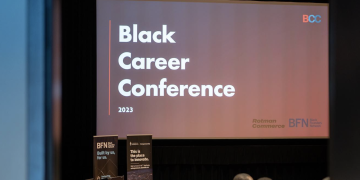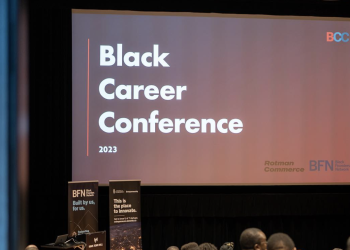Female founders still receive a fraction of Canada’s venture capital. In 2023, women-led startups secured less than three percent of total funding. Yet across the ecosystem, momentum is shifting. New funds like The51 and Women’s Equity Lab are deliberately backing women-led ventures, while government programs such as FedDev Ontario’s recent $2.4 million investment are designed to expand access for underrepresented founders.
Against that backdrop, a new wave of female entrepreneurs is building companies that are not only breaking barriers, but also reshaping Canada’s innovation economy. These women are launching ventures in AI, education, law, and voice tech, fields where Canadian leadership can set a global standard.
Why Female Leadership Matters
The gap in funding is real, but so is the potential. Research shows that women-led businesses deliver higher returns per dollar invested and often design products that solve overlooked problems. In Canada, ecosystems in Toronto, Vancouver, and Montreal are investing in closing the gap, not just out of fairness but because of the economic upside.
This is where female founders become more than statistics. They represent the front line of change: building companies that create jobs, generate revenue, and reflect the diversity of the markets they serve. Their success is evidence that inclusive investing translates directly into innovation and resilience for Canada’s economy.
Tamar Huggins – Building Tech Equity
When Tamar Huggins launched Tech Spark in 2015, her vision was simple albeit ambitious: give Black and Indigenous youth a way into the tech economy. She saw firsthand how few people of colour were represented in Canada’s startup ecosystem and set out to change that through education.
Tech Spark became Canada’s first tech school focused on girls and youth of colour. Over the years, it has introduced thousands of students to coding, design, and entrepreneurship. Huggins didn’t stop there. In 2023, she unveiled Spark Plug AI, a generative AI tool designed to centre Black culture and language in classrooms. The platform ensures that students see themselves reflected in the content they learn, countering biases that often exist in mainstream AI tools.
Huggins’ work is rooted in a belief that representation drives participation. By building tools that validate identity, she is opening the door for a new generation of diverse tech creators. Her efforts haven’t gone unnoticed. She has been celebrated by outlets like Forbes and BET, and has emerged as a sought-after voice on how equity and technology intersect.
Huggins’ story matters because it proves that innovation doesn’t always start in boardrooms or labs, it can begin in classrooms. By connecting culture to technology, she is expanding who gets to build the future.

Ritika Dutt – Legal Access Through AI
For many survivors of harassment and assault, navigating the legal system is overwhelming. That’s the problem Ritika Dutt set out to solve when she co-founded Botler AI in Montreal. The platform uses artificial intelligence to help users determine whether their experience qualifies as a legal case and generates a report that can be shared with authorities or legal counsel.
The idea was born out of a desire to close the gap between those who need help and the institutions meant to provide it. Legal jargon, long wait times, and lack of affordable services often keep survivors from pursuing justice. Botler AI strips away that complexity, offering clarity in plain language and empowering users to take the next step with confidence.
The startup’s impact has already reached far beyond Canada. Botler AI was recognized by Forbes, landing Dutt on the Forbes 30 Under 30 list in Law & Policy. The recognition validated not only the innovation, but also the urgency of the problem she is tackling.
Dutt’s work underscores a bigger point about Canadian innovation: some of the most important breakthroughs come from applying technology to human rights and social justice. By focusing on access to justice, she is showing how startups can change lives as well as markets.

Fatima Zaidi – Voice Tech Meets Health Advocacy
Fatima Zaidi has built her career at the intersection of media, technology, and advocacy. She is the founder and CEO of Quill Inc., a Toronto-based podcast agency that produces branded shows for some of North America’s biggest companies. Out of that work came CoHost, a podcast hosting and analytics platform that helps brands measure audience engagement and growth with the same rigor they apply to other marketing channels.
Zaidi’s vision goes beyond helping companies tell stories. She has become one of Canada’s most visible advocates for the power of audio, showing how podcasts can be a serious tool for business, not just a side project. That positioning has made her a sought-after speaker in both media and tech circles.
At the same time, Zaidi has tied her entrepreneurial work to social impact. She co-chairs Tech4SickKids, a campaign that mobilizes the tech community to raise funds for Toronto’s Hospital for Sick Children. It’s a role that reflects her belief that tech leaders have a responsibility to contribute beyond their own companies.
Zaidi’s career highlights how Canadian founders are expanding the definition of tech entrepreneurship. She demonstrates that innovation can live at the crossroads of culture, media, and health, and that success can mean shaping industries while giving back to the communities that sustain them.

The Next Wave
Tamar Huggins, Ritika Dutt, and Fatima Zaidi represent different industries, but their stories share a common thread: they are building companies that solve real problems while broadening who gets to lead in Canadian tech.
Their success is also a signal. Female founders are still underfunded, but the momentum is shifting. With new capital, mentorship networks, and community support, Canada’s innovation economy is slowly opening to more diverse leadership.
The next wave of Canadian startups may not look like the last. And that is exactly the point.













